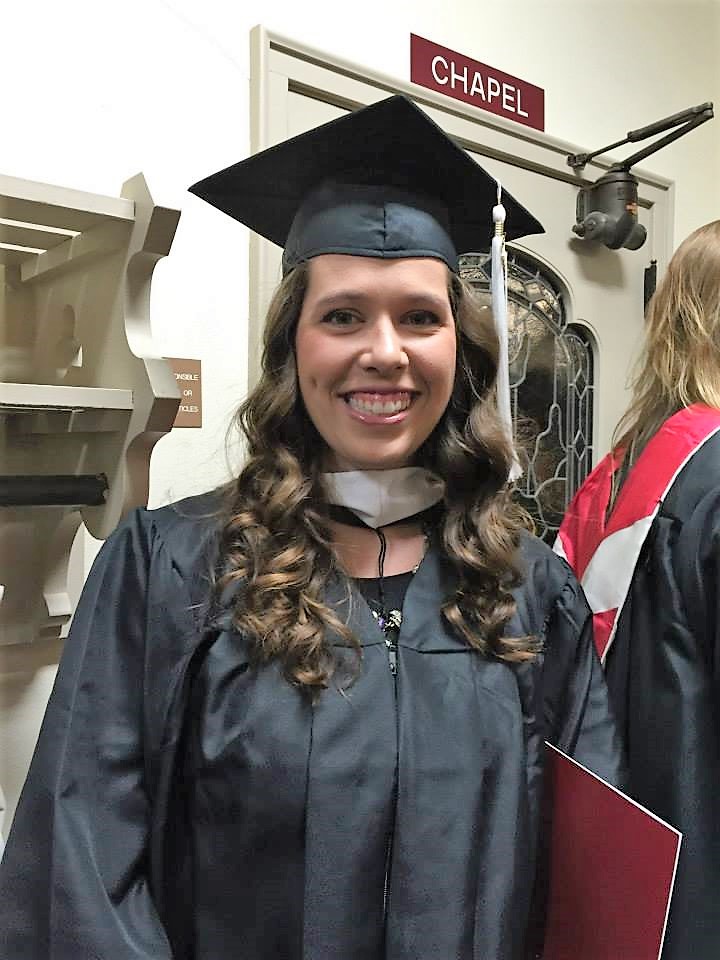Program Details
| Recommended Courses |
|
English Composition
- ENGL101 – English composition and an additional writing class
Oral Communication
- A speech class such as SPCH103 or SPCH126
Arts, Humanities and/or Social Sciences
- 8 semester hours such as drawing & painting, foreign language
General Biology
- BIOL 101 - General Biology I (lecture and lab)
- BIOL 102 - General Biology II (lecture and lab)
- BIOL 360 - Genetics
- BIOL 335 - Mammalian Physiology
- BIOL 420 - Gross anatomy
General Chemistry
- CHEM 111 - General Chemistry I (lecture and lab)
- CHEM 112 - General Chemistry II (lecture and lab)
- CHEM 321 - Organic Chemistry I (lecture and lab)
- CHEM 322 - Organic Chemistry II (lecture and lab)
- CHEM 351 - Biochemistry
Physics
- PHYS 131 - Introduction to Physics I (lecture and lab)
- PHYS 132 - Introduction to Physics II (lecture and lab)
|
Additional Resources
Frequently Asked Questions
How high should my GPA be in order to go to veterinary school?
The average Science GPA of students admitted into Veterinary schools in the U.S. in 2016 ranged from 3.26 to 3.65, depending on the school. The GPA in the last 45 credits is an important factor in the admittance process as this typically includes the prerequisite courses. It ranges from 3.44 to 3.77, depending on the school.
When should I begin my pre-veterinary coursework?
As early as possible in your undergraduate education.
What else should I do to prepare for Veterinary school?
Veterinary medicine schools require experiences working with animals supervised by a Doctor of Veterinary Medicine, research experience with animals, and experiences taking care of animals (besides your pets). Seek out opportunities that will help you build these experiences.
How long does it take to get through veterinary school?
It takes 4 years to become a Doctor in Veterinary Medicine.
Alumni Spotlight
 According to Taylor (Hance) Malloy, a graduate of Grand View University, "Veterinary medicine is a difficult and competitive career path. Admissions look at academic achievement and experience to narrow down the applicants, but the things that make an application memorable are in the personal statement, essays, and letters of recommendation. Grand View and its professors provide resources to strengthen those areas in an application, because they want their students to be successful."
According to Taylor (Hance) Malloy, a graduate of Grand View University, "Veterinary medicine is a difficult and competitive career path. Admissions look at academic achievement and experience to narrow down the applicants, but the things that make an application memorable are in the personal statement, essays, and letters of recommendation. Grand View and its professors provide resources to strengthen those areas in an application, because they want their students to be successful."
While earning her undergraduate degree at Grand View, Taylor majored in biology and minored in chemistry and logos. In her own words, "Grand View’s science department included all of the necessary prerequisites that I needed for attending veterinary medical school," Taylor says. "My advisor helped me set up my prerequisites in conjunction with the components needed for a biology major/chemistry minor. A bachelor’s degree is not required for admission to vet school, but if I had decided to change my career goals, a degree in biology would have given me many more options than no degree at all. The classes at Grand View challenged me, forcing me to adjust my study habits in a way that helped me at GV and continues to help me with my immense course load. There are too many classes and too much information to successfully cram for exams in vet school, so developing good study habits is essential."
Taylor chose to attend veterinary school at Iowa State University's (ISU) College of Veterinary Medicine because itis the only college in Iowa that has a vet-med program and is close to her family and friends. ISU is also one of the top 10 ranked veterinary medical schools in the United States. In fact, according to Taylor, "Some of the professors are top of the line in their field of study, and the school's facilities continues to grow."
Taylor recommends Grand View to future students interested in veterinary medicine because "...the environment is centered around student learning." Taylor also says, "One of the reasons I didn’t attend ISU for my undergraduate degree is the size of the school. Small class sizes at Grand View allow professors to get to know their students, and provide more one-on-one aid. The professors in the science department have their own projects, but have open office hours to make students a priority. Classes progress from fundamentals to focused areas of study, and advisors meet with their students to establish a program that suits their degree & future career goals. Grand View has student resources dedicated to writing/reviewing resumes and cover letters, tutoring, and mock-interviews, and when I needed a letter of recommendation on my vet school application, my advisor and professor was more than happy to write one."